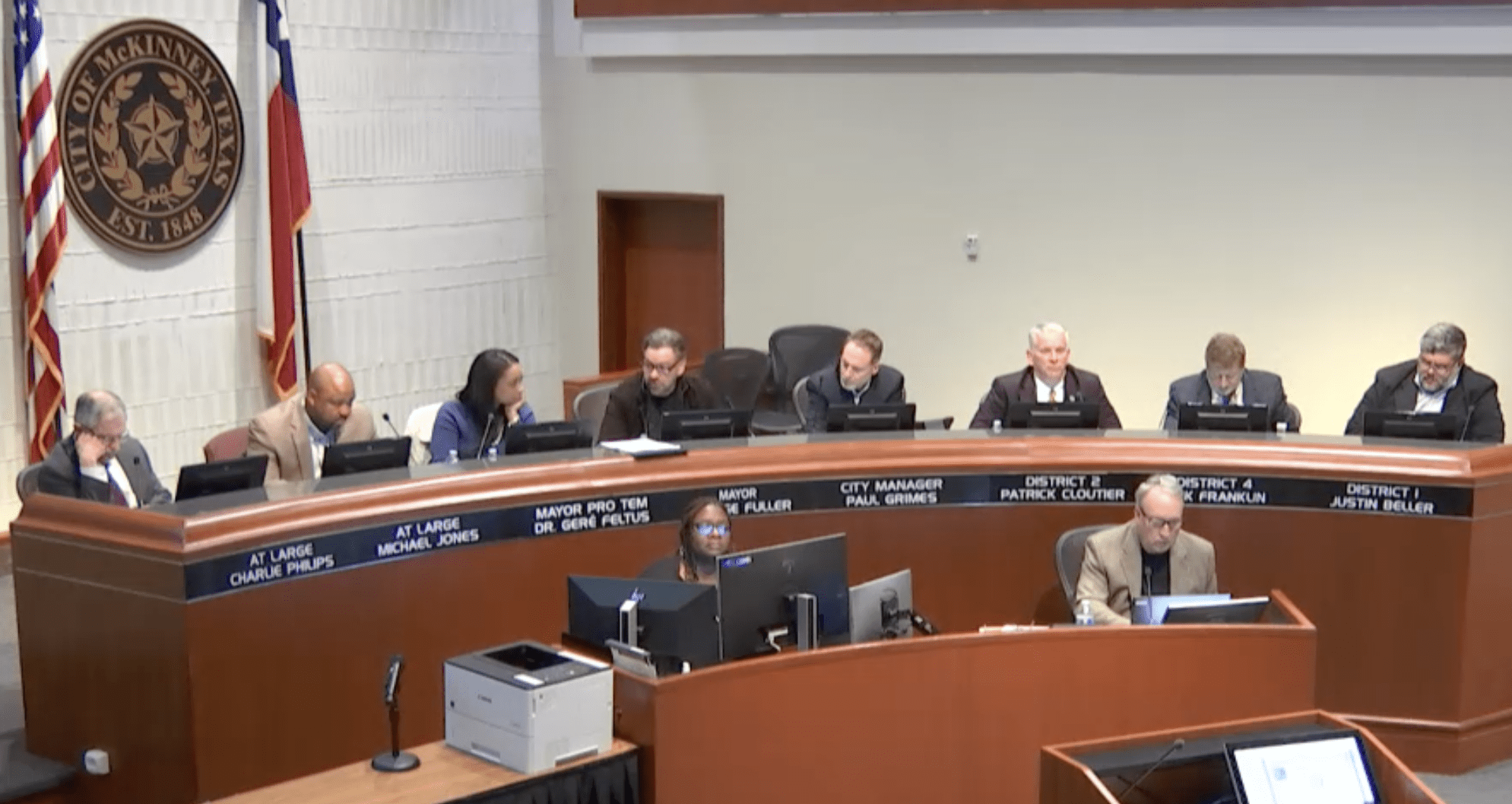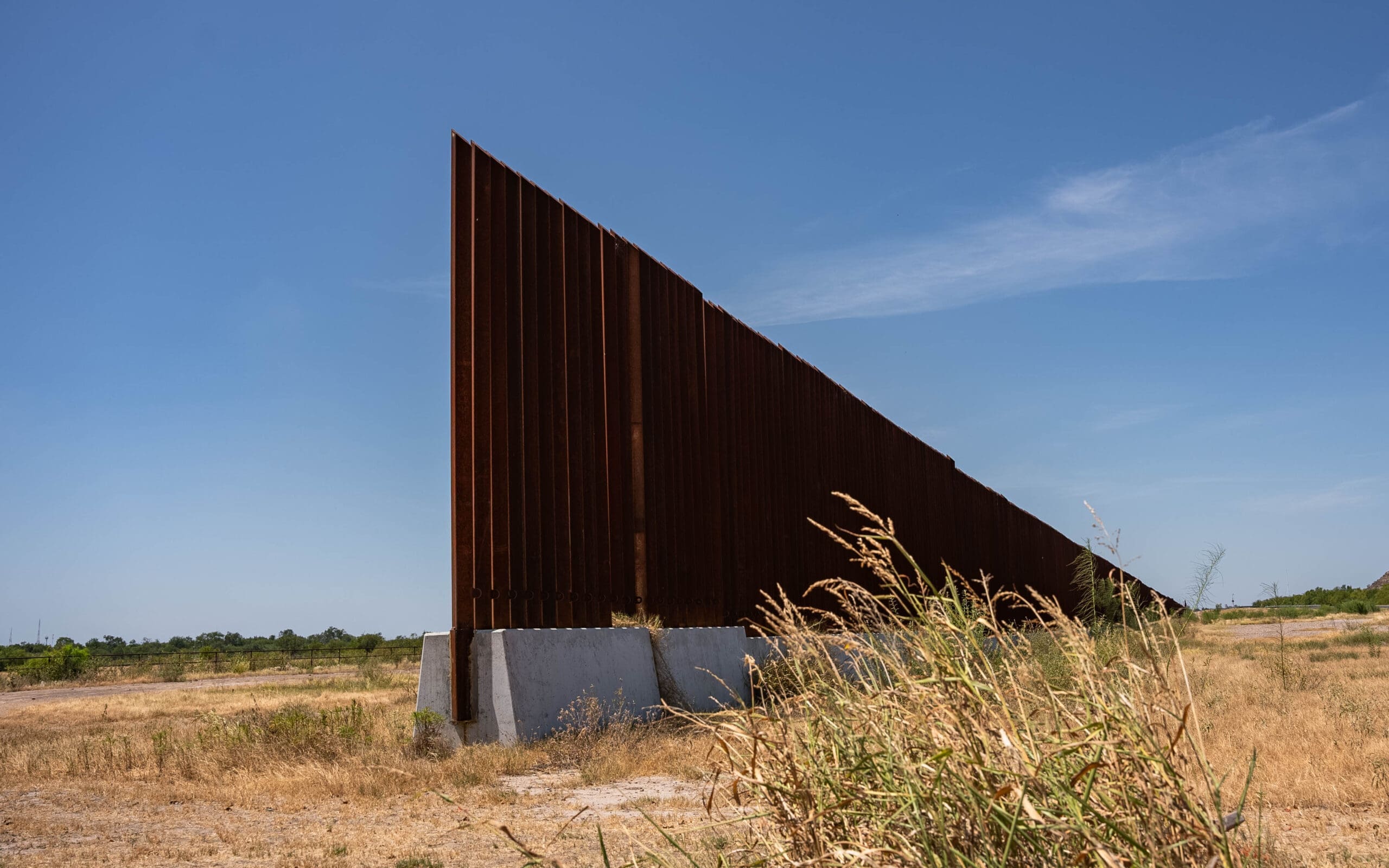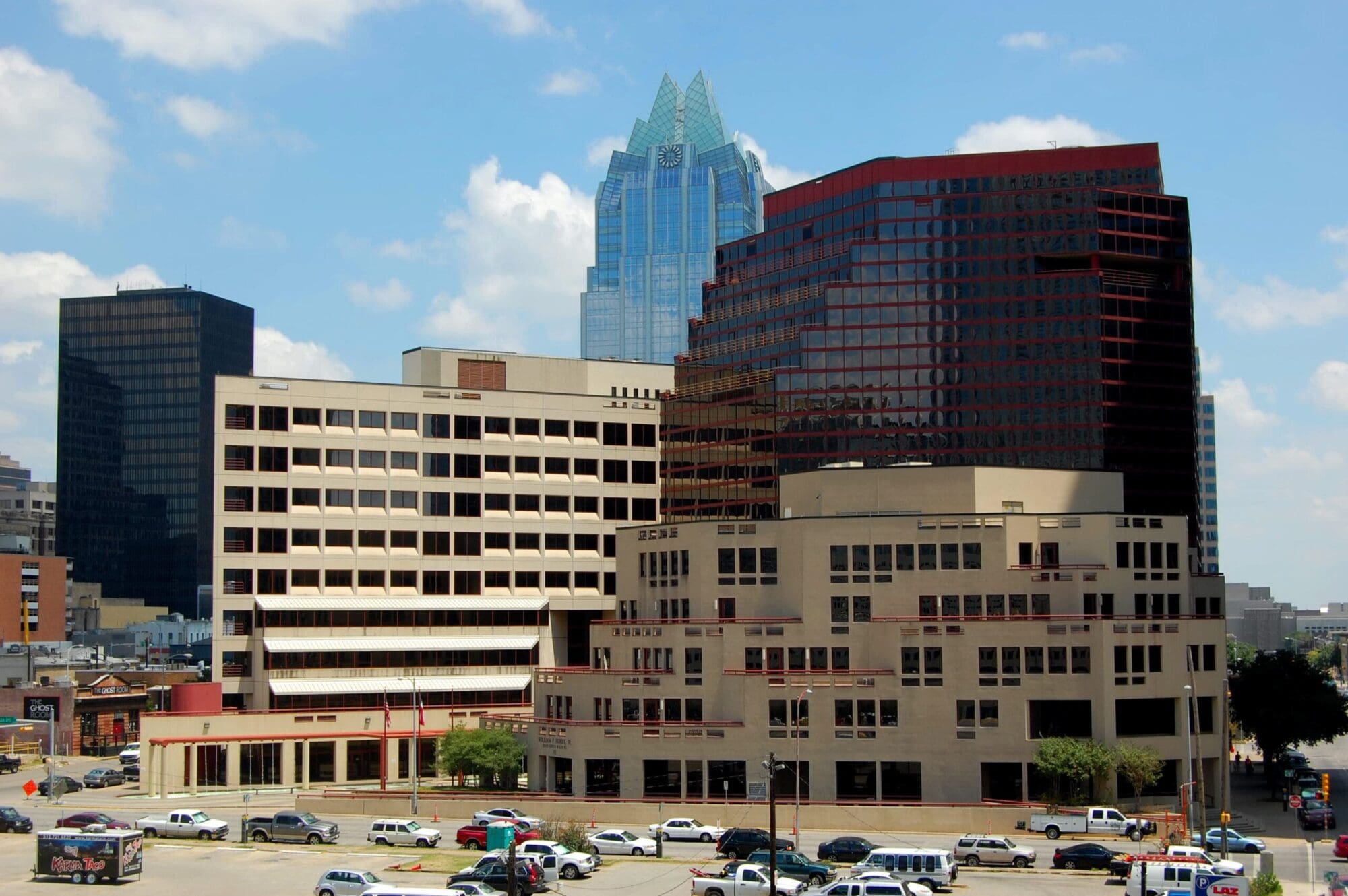In a 5-2 vote, McKinney City Council passed a resolution Tuesday night supporting a controversial plan for expanding the city-owned airport.
The resolution recommends that the city’s Planning and Zoning Commission approve a site plan for constructing a 48,000 square foot terminal at McKinney National Airport, which includes design exceptions to reduce tree-planting requirements.
The airport currently serves general aviation, but the mayor and other local officials and developers are supporting plans to add commercial air service.
P&Z is set to vote on the site plan during a January 14 meeting, after discussion of the issue was tabled in December.
Councilmen Justin Beller and Patrick Cloutier voted against the resolution.
Cloutier said during Tuesday’s city council meeting that he doesn’t have any problem with the site plan, but he’s concerned about moving forward without financing in place for the project—which he said is “going to happen.”
“There’s a couple things that concern me here, and one of them is that we actually did have an election. We called that election. And that election was to use general obligation debt, that’s backed by property taxes, for the development of a commercial terminal in this airport,” he explained.
The city’s $200 million airport bond, proposed in May 2023, would have cost McKinney property taxpayers an estimated $380 million with interest.
“I understood when people voted it down… and they did vote it down,” said Cloutier.
The airport bond proposition failed, with 59 percent of voters opposed. Pro-bond group McKinney Above the Rest PAC was also fined $2,500 for violating state campaign ethics laws.
Cloutier said general obligation debt was the cheapest way to finance the airport, “but our voters said no, and I’m going to respect that.”
He said another option is to bond airport revenues, but added the city has done that and spent the money on new corporate hangars for the general aviation side of the airport.
“It’s good business for us,” said Cloutier, noting that the airport used to be subsidized by the general fund but now “pays for every dime of its own expenses, plus some.”
Cloutier said the funding mechanism he wants in place before moving forward is a public-private partnership “with no deal against the taxpayer.” But he said the only ones he’s seen would require a guarantee backed by property taxes.
“So as I move forward, what I want to do is look for a way to do this that doesn’t invade any property taxes,” said Cloutier.
Cloutier added that whether or not people like the airport, “There is no alternative. This is going to happen.”
“But this is a low-trust time in politics,” he said. “You know that, and I sure know that.”
“I’m looking for partners—whether it’s an airline, whether it’s Goldman Sachs, whether it’s the FAA, whether it’s TxDOT—to come in here and help the McKinney taxpayer get this over the finish line. And I haven’t seen that yet,” he concluded.
Also during Tuesday night’s meeting, Councilman Charlie Philips announced he will not be seeking another term on council when his second term expires in May.
Philips previously announced plans to run for mayor, after voters rejected a November ballot proposition that would’ve allowed Mayor George Fuller to seek a third term.
Since then, Bill Cox—a commercial realtor, former McKinney city councilman, and current chairman of the city’s Planning & Zoning Commission—entered the race.
Cox is a past chairman of McKinney’s Chamber of Commerce and served on the committee that recommended last year’s $485 million city bond. In 2009, then-Councilman Cox was accused of extorting $50,000 from a developer, but the case was later settled.
More candidates may enter the mayoral race. Three city council positions will also be on the May 3 ballot: District 1, District 3, and Phillips’ At-Large 1 seat.
The candidate filing period for local elections is January 15 through February 14.





